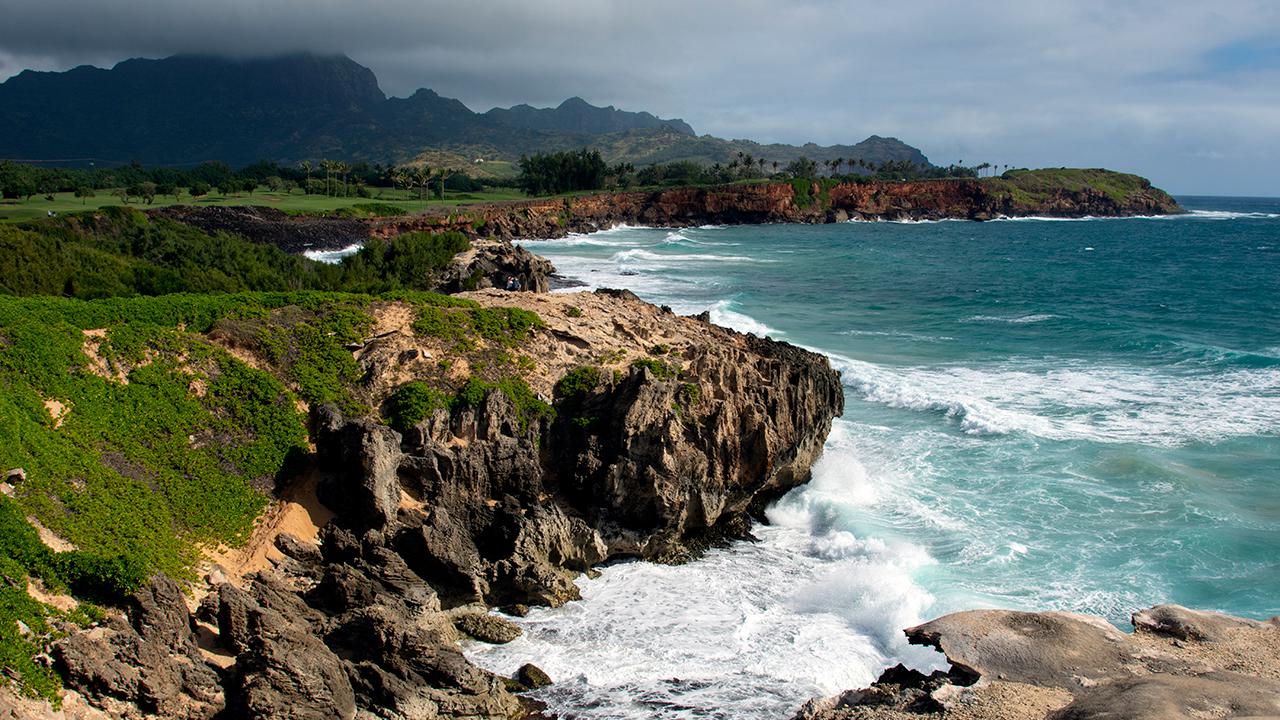

Coastal view at the Mahaulepu Heritage Trail, Kauai, Hawaii. Andre Seale / VW PICS / Universal Images Group / Getty Images
By Andrea Germanos
Hawaii is poised to become the first U.S. state to declare a climate emergency after the Legislature’s adoption Thursday of State Senate Concurrent Resolution 44.
The bill “acknowledges that an existential climate emergency threatens humanity and the natural world, declares a climate emergency, and requests statewide collaboration toward an immediate just transition and emergency mobilization effort to restore a safe climate.”
It calls on the state to commit to “a just transition toward a decarbonized economy that invests in and ensures clean energy, quality jobs, and a statewide commitment to a climate emergency mobilization effort to reverse the climate crisis.”
The passage was welcomed by Hawaii Climate & Environmental Coalition member 350 Hawaii, which declared on its Facebook page: “We are the ones the future generation is counting on.”
Shout out to 350Hawaii for this win! 350Hawaii + many others have worked tirelessly to ensure Hawaii becomes the first state to declare a climate emergency.
Now for the other 49 states to get on board and ensure that communities of color are at the table. https://t.co/XZrrbtoVDo
— Denali Sai Nalamalapu (@Denali_Sai) April 30, 2021
“Hawaii is the first state to join a movement largely led by cities and counties to declare a climate emergency which reflects the commitment our state Legislature continues to make to address the causes and the impacts of climate change,” state Rep. Lisa Marten (D-51), who led the House version of the measure, said in a statement.
According to the Climate Mobilization Project, such declarations have been made by over 1,900 jurisdictions worldwide, including 144 within U.S. 24 states. Climate emergency declarations have previously been made by the Hawaii Island Council and Maui County Council.
Dyson Chee, advocacy director for the Hawaii Youth Climate Coalition, another member of the Hawaii Climate & Environmental Coalition, also hailed the resolution’s passage, saying that “climate change is an emergency that needs to be dealt with accordingly.”
“Every day we wait to take action is another day lost. The climate crisis is a clear and present threat for both current and future generations,” said Chee.
At the federal level, President Joe Biden is facing calls to declare a climate emergency.
In February, Reps. Earl Blumenauer (D-Ore.) and Alexandria Ocasio-Cortez (D-N.Y.) joined with Sen. Bernie Sanders (I-Vt.) in introducing the National Climate Emergency Act of 2021, which calls for investment in “large scale mitigation and resiliency projects” that advance “a racially and socially just transition to a clean energy economy.”
“Our country is in crisis and, to address it, we will have to mobilize our social and economic resources on a massive scale,” Ocasio-Cortez said at the time. “If we want to want to avoid repeating the mistakes of the past—if we want to ensure that our nation has an equitable economic recovery and prevent yet another life-altering crisis—then we have to start by calling this moment what it is, a national emergency.”
Reposted with permission from Common Dreams.
- Hawaii Becomes First State in the U.S. to Ban the Toxic Pesticide ...
- Heavy Rain in Hawaii Prompts State of Emergency - EcoWatch
- Hawaii Moves to Ban More Reef-Harming Sunscreens - EcoWatch
- Despite Urgent Need for Green Recovery, World's Cities Woefully Underfunded to Fight Climate Emergency

 233k
233k  41k
41k  Subscribe
Subscribe 